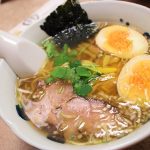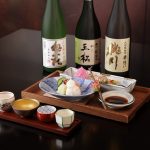What does menkui mean in Japanese? 面食い?

There are people in Japan who have the character of “menkui(面食い)”.
In fact, there are many such people not only i ...
What does “ike ike” mean? 行け行け?イケイケ?いけいけどんどん?

Ike ike—!(イケイケー!)
Ike ike don don! (行け行けどんどん!)
Ike ike, go go! (いけいけゴーゴー!)
Otouto no atarashii kano ...
What does ikemen(イケメン)mean?

There is a line that a Japanese comedian always says when he appears in TV shows and so on.
“Ramen(ラーメン、拉麺) ...
What does mazui mean?まずい!

The word “mazui(まずい)” that often appears in Japanese conversations is used regardless of gender or age.
It has se ...
Meaning of “oishii” “umai”? What is the difference?おいしい うまい

When Japanese feel “delicious”, “tasty”, “yummy” and the like, they often express “oishii” or ...
What does “oishii desu ne / yo / ka” mean? おいしいです

The Japanese word “oishii(おいしい:美味しい)” means “delicious”.
The followings are examples of ...
What does oshii mean? Japanese? おしい!惜しい!

“Oshii —!”
This “oshii(惜しい:おしい)” is a word that often appears in Japanese conversation.
It is used in casua ...
What does sugoi mean in english? すごい?凄い?

“Sugoi(すごい:凄い)” is a word that is often used at any time, in any situation, regardless of age or gender.
You ca ...
What does (moshi) yokattara mean? もしよかったら?

“Yokatta(よかった)” means “that was good,” but if the word becomes “yokattaRA(よかったら)”, it becomes a different meaning.
What does otsukaresama desu/deshita mean English? おつかれ?お疲れ?

“Otsukaresama”
“Ostukaresama desu”
“Otsukaresama desita”
Japanese people say the phrases above in many ...